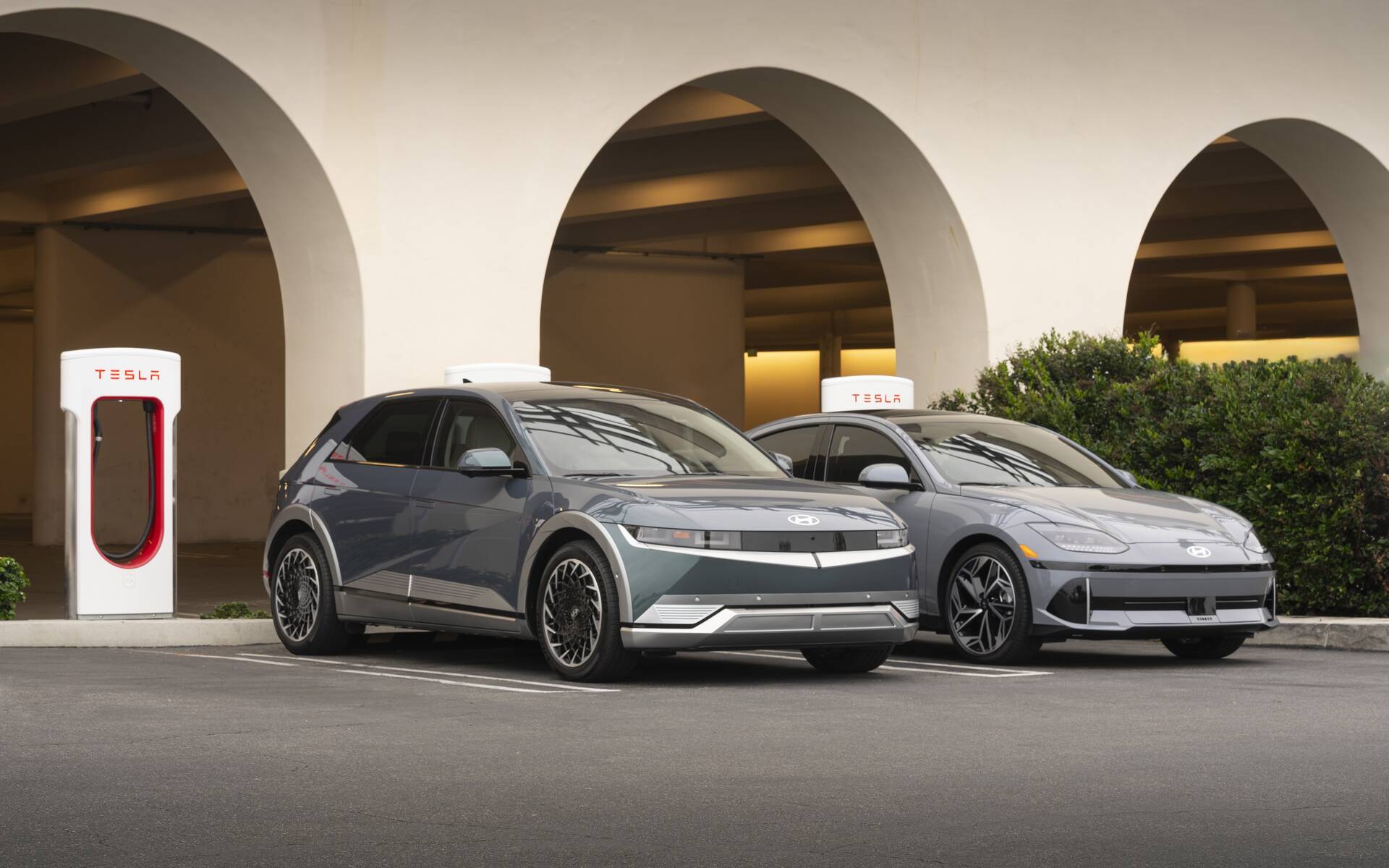Hyundai, Genesis and Kia EVs to Have Access to Tesla’s Superchargers


Despite recently teaming up with six other major automakers to develop a new fast-charging network in North America by 2030, Hyundai today announced it will adopt North American Charging Standard (NACS) ports for its future electric vehicles in the U.S. beginning in the fall of 2024 and in Canada in the first half of 2025.
That means new IONIQ 5 and IONIQ 6 EVs built from that point forward will come exclusively with an NACS port, giving them access to more than 12,000 of Tesla’s Superchargers across North America. These high-speed chargers will enable users to make the most of the excellent fast-charging capacity (over 200 kW) afforded by Hyundai’s E-GMP architecture.
Read also
- Tesla Superchargers in Canada Now Using kWh Billing
- Study: Reliability, Satisfaction with Tesla Superchargers Easily Trump Competition
The Korean manufacturer will also make adapters available to charge NACS-equipped vehicles at CCS chargers.

“Our collaboration with Tesla marks another milestone in our commitment to delivering exceptional EV experiences to our customers,” said José Muñoz, president and CEO of Hyundai Motor North America. “This new alliance will provide Hyundai EV owners confidence in their ability to conveniently charge their vehicles and complements our joint venture company to create a new, high-powered charging network with at least 30,000 stations across North America.”
Owners of existing and future Hyundai EVs with the current CCS connector will also have access to Tesla Superchargers starting in the first half of 2025. The company will provide them with an adapter of their own.
Hyundai’s luxury brand Genesis will do exactly the same things with this own EVs including the GV60. Sister company Kia will jump on the NACS bandwagon, too, in case you were considering an EV6 or EV9.

Ford, GM, Rivian, Volvo, Polestar, Mercedes-Benz, Nissan, Infiniti, Honda and Acura have all made similar announcements in the past few months, looking to capitalize on Tesla’s renowned charging technology, which lead the industry in terms of dependability and user satisfaction according to a recent J.D. Power study.








